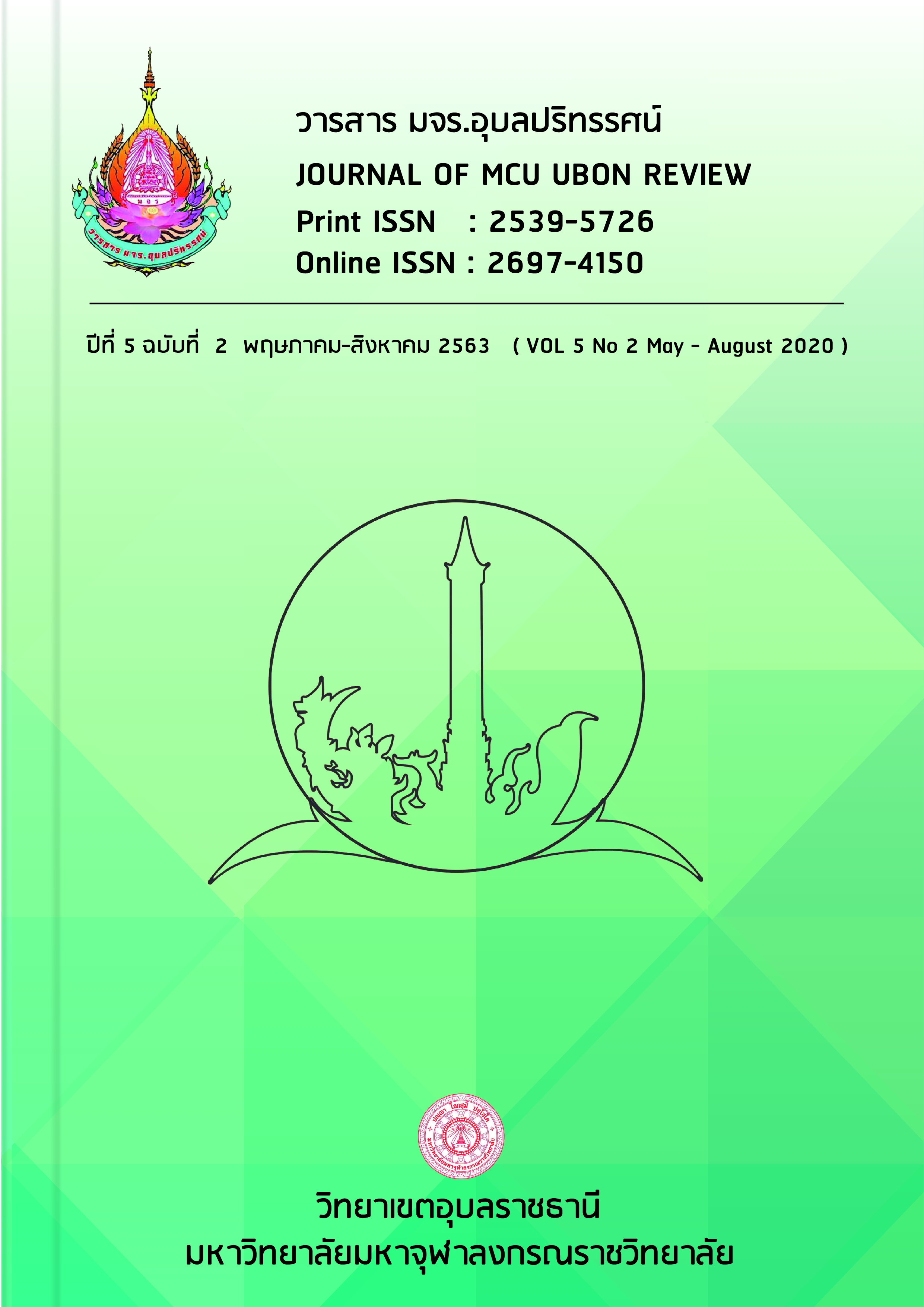The experience in the narrative and the imagination of language in the literature of Chuang Tzu
Main Article Content
Abstract
In this article, an attempt was purposely made to uphold the imaginative narration in literature of Chuang Tzu where he considerably affirmed that a wise man is he who narrates the story through the imagination because he was of the view that the experience on the straight narration as was proposed by Plato no longer leads to the reality. In this matter, Plato reasoned that when the warrior’s story was being narrated by a poet, he did it by his imagination, not the real warrior and thereby not being able to bring in any belief as in the way the warrior himself did it because such imagination is akin to imitation, not the good way to narrate the story. Furthermore, the perfect imitation of the story could not be made. As regards Chuang Tzu’s viewpoint, he agreed with the mentioned technique of narration because it can lead to the inner reality of human being where perception can be made through language. He argued that the one who listens from the experience of the narrator needs no same feeling or understanding; he just only focused on between the narrator and the listener where some experiences are together perceived or remained the most similar aspect by which the connection leading to the reality through such imagination by means of language was done as the middle means.
Article Details
References
เพลโต. (2559). รีพับลิก. แปลโดยเวธัส โพธารามิก. พิมพ์ครั้งที่ 3. สมุทรสาคร: พิมพ์ดี.
สุรัติ ปรีชาธรรม. (2556). จวงจื่อฉบับสมบูรณ์. พิมพ์ครั้งที่ 2 กรุงเทพมหานคร: โอเพ่นบุ๊กส์.
สุวรรณา สถาอานันท์. (2556). กระแสธารปรัชญาจีน: ข้อโต้แย้งเรื่องอำนาจ ธรรมชาติ และจารีต. พิมพ์ครั้งที่ 4. กรุงเทพมหานคร: สยามสยามปริทัศน์.
โฮเมอร์. (2560). มหากาพย์อีเลียด. แปลโดย เวธัส โพธารามิก. นนทบุรี: ภาพพิมพ์.
Ludwig Wittgenstein. (1967). Philosophical Investigations. tr.by G.E.M. Anscombe. 3rd edition. (Oxford: Basil Blackwell Ltd).
Elizabeth belfiore. (2009). "The Elements of Tragedy", A Companion to Aristotle, Edited by Georgios Anagnostopoulos, (Oxford: Blackwell Publishing Ltd).


